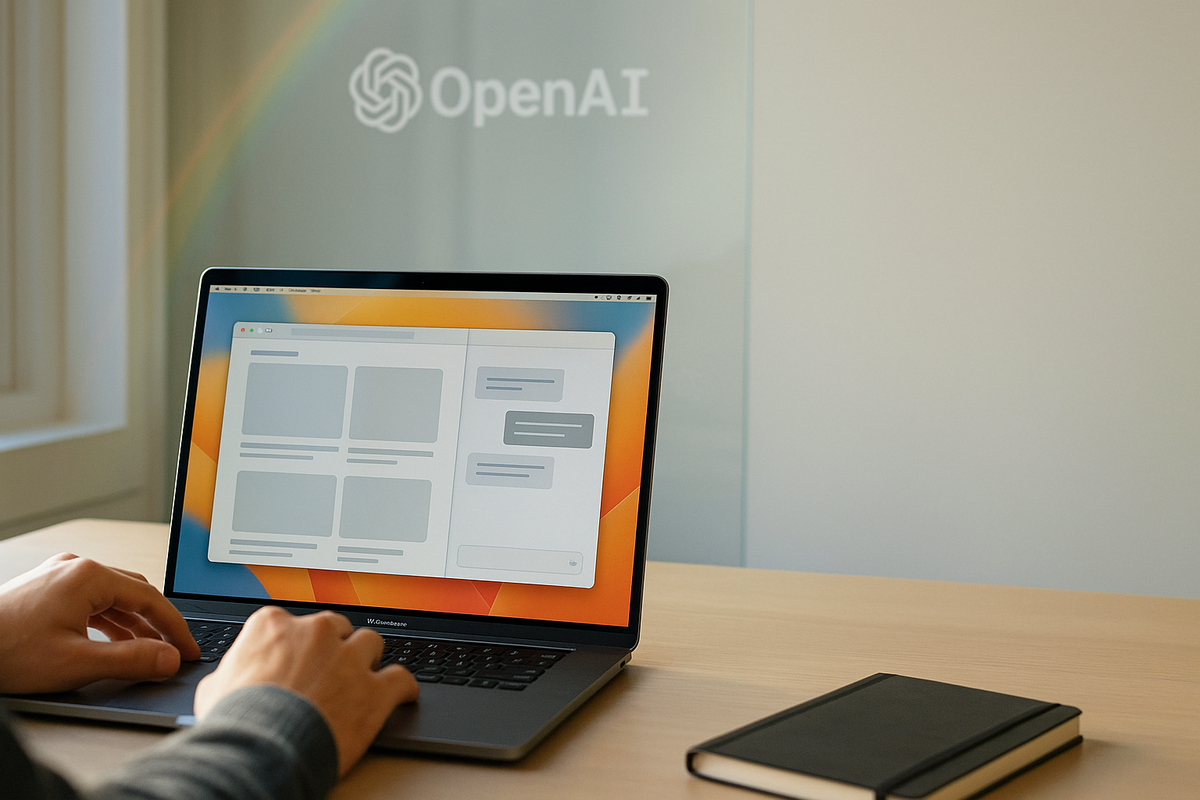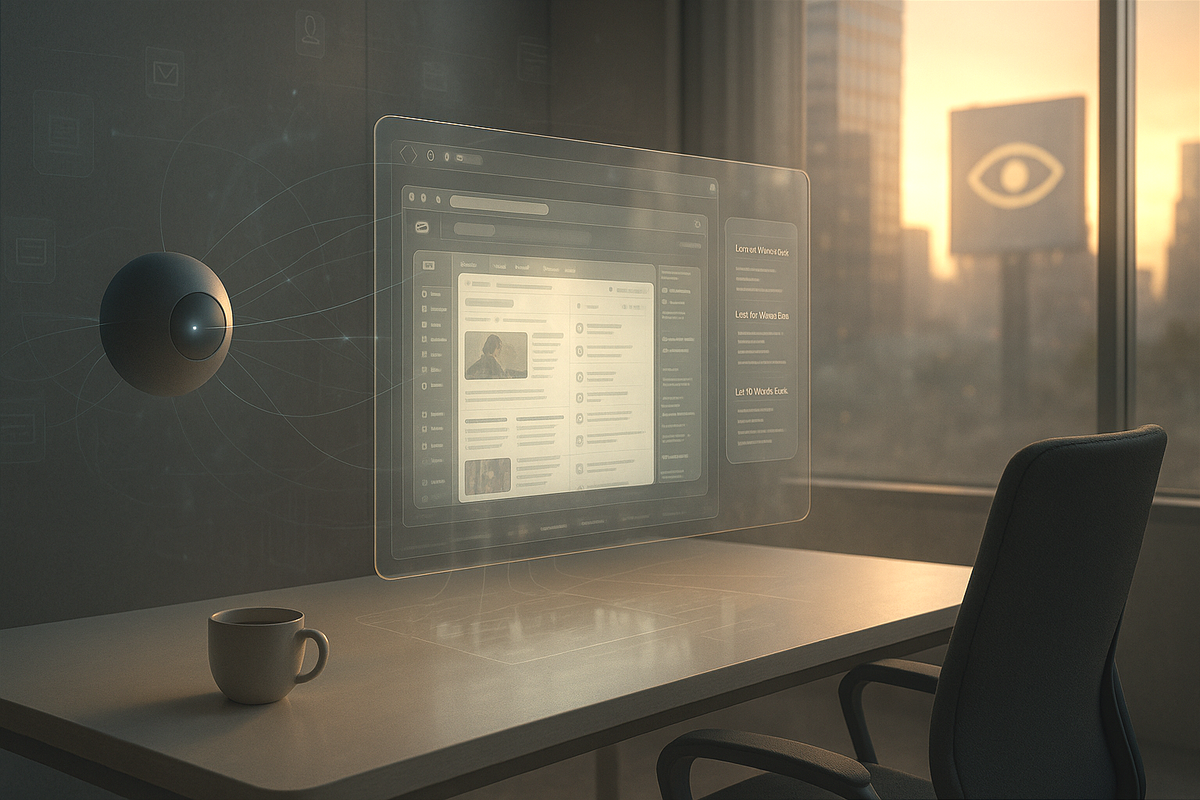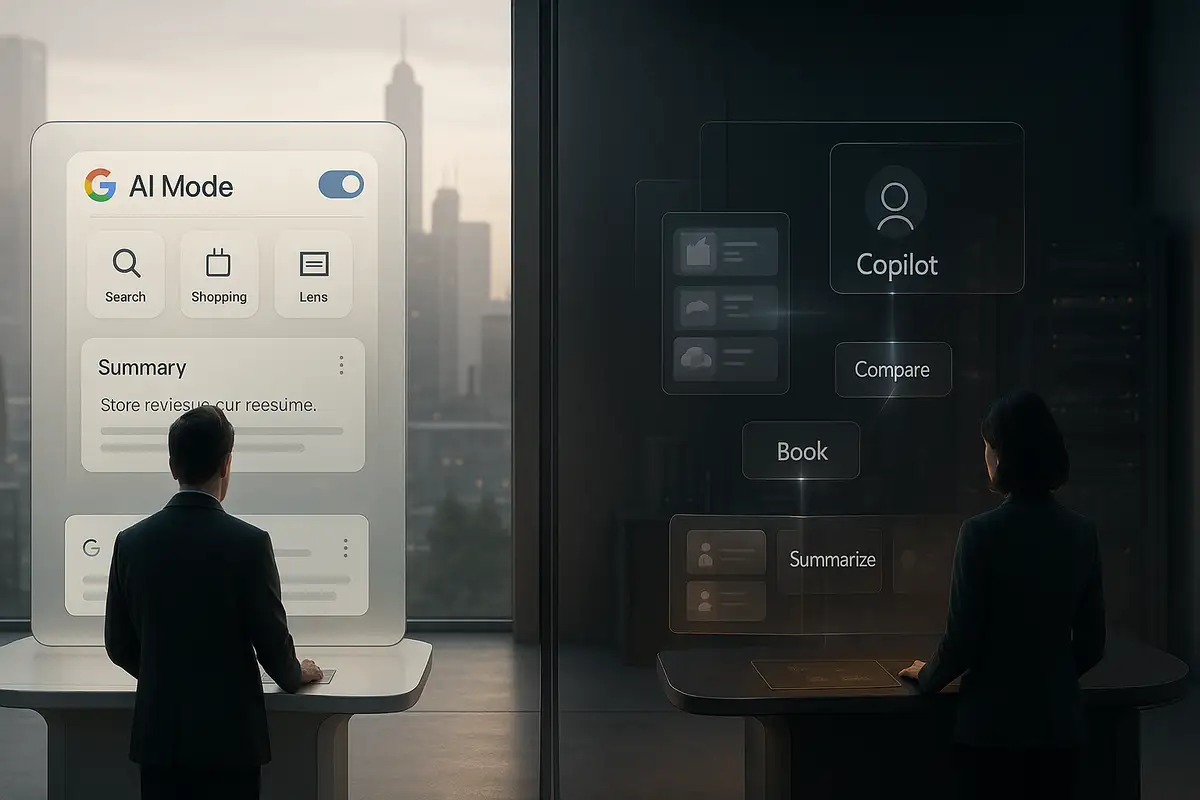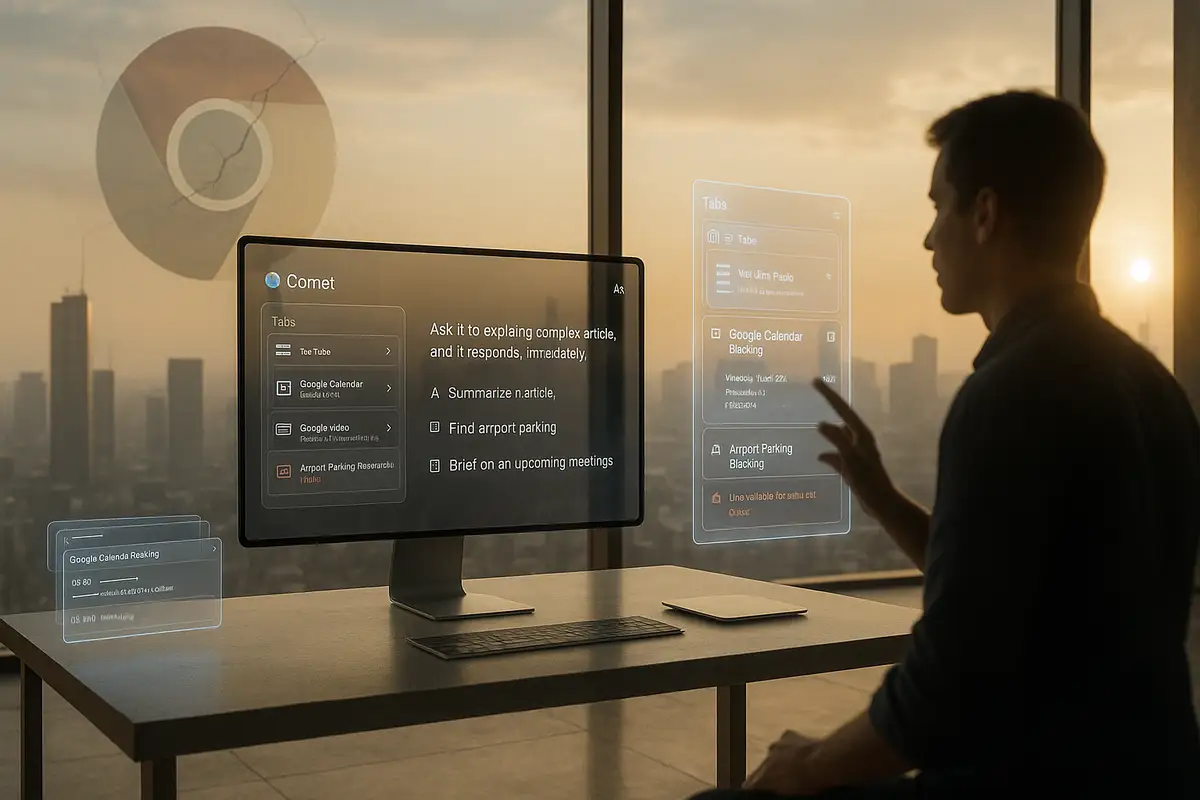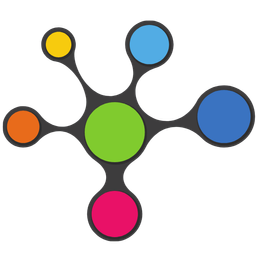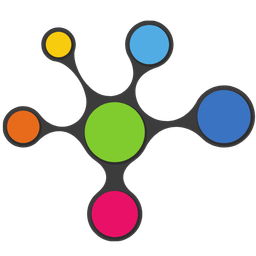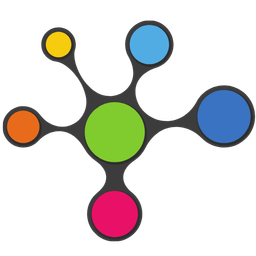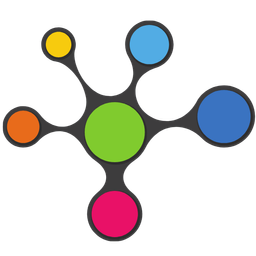The AI company's new product marks its most direct challenge yet to Alphabet's core business—and investors noticed
Sam Altman unveiled OpenAI's Atlas browser Tuesday morning. The timing wasn't random—a federal judge is weighing remedies in the Justice Department's antitrust case against Google this same week. The company already lost on the merits. Ruled an illegal monopolist in search.
Now it faces something arguably more dangerous: a credible technical challenger.
Alphabet shares dropped 3% by midday, wiping out about $18 billion in market value. Analysts started modeling scenarios. Even modest user defection from Chrome threatens the advertising infrastructure that generated $237 billion for Google last year—77% of Alphabet's total revenue.
The Breakdown
• OpenAI launched Atlas browser Tuesday; Alphabet shares dropped 3%, erasing $18 billion in market value
• Atlas inverts search—AI answers first, links optional—threatening Google's $237 billion ad model (77% of revenue)
• Built on Chromium with 800 million ChatGPT users as ready distribution; 5% conversion gives 40 million users instantly
• If Atlas captures 10% of Chrome's 3 billion users, $15 billion in search revenue shifts—Google's first sustained siege
The Browser Wars, Round Two
Atlas runs on Chromium—the same open-source engine under Chrome. Websites load the same way. Extensions work identically. OpenAI even hired Ben Goodger, who helped build Firefox and Chrome, to lead the project.
The similarity is tactical. OpenAI doesn't need to reinvent browser infrastructure. It needs to change what people expect browsers to do.
The search experience makes that clear. Type a query and ChatGPT responds first—conversational, synthesized, usually sufficient. Traditional link results sit behind a tab. Available, but not primary. Google shows links first, AI second.
That inversion matters more than the technology behind it.
Search has worked a certain way since the late 1990s. Algorithms rank pages. Advertisers bid on keywords. Users click links. Google spent two decades perfecting the economics—sharper targeting, more data, auctions that squeezed every dollar from advertiser budgets. Last year that generated $230 billion in advertising revenue, most of it from search.
Atlas restructures the exchange. Type a query and the AI synthesizes an answer rather than pointing to pages that might contain one. Links sit there, optional. Which leaves advertising placements with nowhere obvious to land.
The economic structure doesn't just look shaky—it requires reinvention.
OpenAI isn't alone in this push. Perplexity launched its Comet browser earlier this year. Brave and Opera added AI features. Microsoft's Edge integrates ChatGPT. But Atlas carries weight the others don't—800 million weekly ChatGPT users represent a ready-made audience. Converting even 5% would give Atlas 40 million users overnight.
The browser includes features Google can't easily match. An "agent mode" lets ChatGPT complete multi-step tasks autonomously—finding recipes, ordering ingredients, booking travel. A sidebar provides instant summaries of any webpage. Optional "browser memories" let the AI track context across sessions, personalizing results in ways that make Google's profile targeting look primitive.
Privacy advocates immediately flagged concerns. An AI that remembers everything you browse creates surveillance risks that dwarf traditional cookies. OpenAI says users control these memories completely, can review them anytime, and can wipe them instantly. The company will need to prove that claim repeatedly.
Distribution as Strategy
OpenAI's structural bet is simple: search is moving from retrieval to conversation. Users want answers, not links to pages that might contain answers. If that shift holds—and early usage patterns suggest it might—Google's PageRank algorithm matters less than the quality of AI synthesis.
The macOS-first approach looks cautious. Windows, iOS, and Android versions are planned, but the company is validating assumptions before committing resources. Apple users skew early adopter. They're also less embedded in Google's Android ecosystem.
If Atlas gains traction with this group, broader rollout makes sense. If not, the company learns without overcommitting.
The browser solves a distribution problem ChatGPT has always faced. The product works well, but users need to navigate to chat.openai.com or download an app. That friction limits growth. A browser puts ChatGPT directly into the workflow of web navigation—integrated rather than separate.
The revenue model potentially works without replicating Google's advertising business. OpenAI already charges $20 monthly for ChatGPT Plus. Converting free Atlas users to paid subscriptions generates income without competing for ad dollars. That's a different game entirely—one that doesn't require matching Google's auction sophistication to succeed.
Chrome's Structural Vulnerability
Google's dominance in browsers creates both strength and fragility. Chrome commands 72% market share globally—roughly 3 billion users. That's an extraordinary moat. It's also an enormous target.
The browser itself generates no direct revenue. Google gives Chrome away because it feeds users into Google Search, which displays the ads that fund everything else. In 2024, Alphabet's search and advertising revenue hit $237 billion—77% of total revenue. Almost all of it depends on maintaining search volume.
Here's the structural problem: if 10% of Chrome users switch to Atlas and use ChatGPT for searches instead of Google, that's 300 million people asking questions elsewhere. Assume each person generates $50 annually in search ad revenue (conservative, given Google's overall metrics). That's $15 billion in revenue risk from modest user defection.
The second-order effects compound. Advertisers optimize spending based on where users search. If search volume fragments across multiple AI platforms, Google's pricing power weakens. Competitors can offer lower rates for equivalent reach. The entire auction dynamic that makes Google's ads so profitable starts eroding.
Google isn't standing still. The company integrated its Gemini AI into Chrome months ago, offering AI-generated summaries alongside traditional results. But it's constrained by legacy economics—too aggressive with AI answers and it cannibalizes its own link-based ad business. OpenAI faces no such conflict. It can optimize entirely for user experience because it doesn't monetize through ads.
This mirrors Chrome's original disruption of Internet Explorer. In 2008, Microsoft's browser dominated with 60% market share. It seemed unassailable. Google launched Chrome anyway, emphasizing speed and simplicity. Within five years, Chrome led the market. Microsoft eventually abandoned Internet Explorer entirely, rebuilding Edge on Chromium—Google's engine.
Now Google occupies Microsoft's former position: dominant incumbent facing a faster, smarter challenger backed by different economics.
The Numbers Behind the Threat
Wall Street's reaction Tuesday reflected calculation, not panic. A 3% single-day drop is significant but measured. Analysts are modeling scenarios.
The bull case for Google: Chrome's network effects prove durable, most users won't switch browsers for incremental AI features, and Google's distribution advantages (Android, default search deals) maintain volume regardless of Atlas.
The bear case: search behavior changes faster than expected, young users adopt AI-first browsing habits, and Google's regulatory troubles prevent aggressive competitive response.
Morgan Stanley estimates Google needs to maintain at least 85% of current search volume to justify its current valuation. Every percentage point of share loss matters materially. If Atlas captures even 5% of the browser market, the implications cascade through Google's entire financial model.
The company also faces timing problems. The DOJ antitrust case could force Google to end default search agreements with Apple and others—deals worth $20 billion annually that ensure Google remains the default search engine across most devices. Losing that distribution while defending against Atlas creates compound pressure.
Advertising clients are already testing alternatives. Several major brands have run campaigns on ChatGPT's search features, paying OpenAI directly for placement in AI responses. The unit economics remain unclear, but the principle matters: advertisers are experimenting with non-Google distribution.
Competing Logics
OpenAI frames this as inevitable evolution. Search technology designed in the 1990s can't remain dominant in 2025. AI synthesizes better answers faster. Users migrate to quality. The browser simply accelerates a transition already underway.
Google sees a different dynamic. OpenAI built its advantage by training on web content Google's crawlers spent decades indexing. The chatbot repackages that foundation into a competing product—without compensating publishers or supporting the open web infrastructure that made the training possible. It's extraction dressed as innovation.
Regulators view the competition as validation. The Justice Department argued for years that Google's monopoly harms consumers. A well-funded challenger with genuinely different technology creates exactly the market pressure antitrust enforcement aims to produce. Competition working as designed.
Publishers face problems regardless. Google's links at least drive traffic to original sources, generating pageviews and ad revenue. AI-generated answers risk stranding content behind chatbot summaries—users get information without visiting the sites that created it. Both models extract value from publishers. Only one provides referral traffic in return.
These perspectives aren't contradictory. They're structural. The web's next phase depends less on which logic wins than on how these competing forces balance—and whether any of them can sustain the content ecosystem they all depend on.
What Gets Tested
Atlas isn't just another browser launch. It's the first serious test of Google's strategic position in 15 years.
Microsoft's Bing never gained traction. Yahoo faded into irrelevance. Smaller competitors stayed niche. Google spent that time optimizing its core business—better ad targeting, incremental price increases—without facing existential pressure.
AI search changes the competitive dynamic. OpenAI doesn't need to beat Google at traditional search. It needs to make traditional search feel obsolete. If users prefer conversational AI over link navigation, Google's technical mastery in ranking pages becomes less valuable. The company would need to compete on AI quality—where OpenAI currently leads.
The regulatory environment compounds this. Google can't acquire OpenAI or Atlas—antitrust scrutiny blocks that path. It can't bundle Chrome more aggressively through Android—DOJ already ruled that behavior illegal. And predatory pricing won't work when the product is already free.
Product competition becomes the only option. Google must prove its AI integration surpasses OpenAI's while maintaining the advertising model that funds everything. The company is threading a needle between technical innovation and business model preservation.
Microsoft's position grows more interesting by the quarter. The company invested $13 billion in OpenAI and embeds ChatGPT across its product line. Atlas potentially drives users toward AI search that Microsoft owns a stake in. Google's weakness becomes Microsoft's opportunity—through direct OpenAI returns and through market share Bing can capture as Google fragments.
None of this resolves quickly. Browser market share shifts gradually. Users resist changing familiar tools. Google's distribution advantages—default search status, Android integration, brand recognition—provide genuine protection.
But the pressure is new. And directional.
The Calculation
Tuesday's 3% stock decline answered one question: investors believe Atlas matters. The drop was measured, not panicked—analysts modeling scenarios rather than fleeing positions.
The remaining question is whether Google can adapt its business model faster than user behavior shifts. The company has engineering talent, financial resources, and distribution at scale. It also has $237 billion in annual revenue tied to a search model that AI answers threaten to disrupt.
OpenAI has momentum, a different economic structure, and 800 million weekly users already comfortable with conversational AI. It lacks Google's distribution reach and faces its own challenges around accuracy, copyright, and monetization.
The next 18 months indicate which set of advantages proves more defensible. Google's fortress model faces its first sustained siege since the company achieved dominance. The walls are thick. But the attackers brought proper equipment this time.
❓ Frequently Asked Questions
Q: Why is Atlas launching on macOS first instead of Windows?
A: Strategic audience selection. macOS users skew early adopter and are less embedded in Google's Android ecosystem. If Atlas gains traction with this group, broader rollout makes sense. If not, OpenAI learns without overcommitting resources to Windows, iOS, and Android versions simultaneously.
Q: How does OpenAI make money from a free browser?
A: Subscription conversion, not advertising. OpenAI already charges $20 monthly for ChatGPT Plus. Converting free Atlas users to paid subscriptions generates revenue without competing for ad dollars—a different economic model than Google's auction-based advertising that doesn't require matching Google's sophistication to succeed.
Q: What are those $20 billion default search deals with Apple?
A: Google pays Apple $20 billion annually to remain the default search engine on Safari and iOS devices. The DOJ antitrust case could force Google to end these agreements. Losing that distribution while defending against Atlas creates compound pressure—fewer guaranteed search queries exactly when alternative browsers emerge.
Q: Why did OpenAI build on Chromium instead of creating a new browser engine?
A: Resource efficiency. Building a browser engine from scratch takes years and billions of dollars. Chromium is open-source, battle-tested, and ensures websites load identically to Chrome with full extension compatibility. OpenAI doesn't need to reinvent infrastructure—it needs to change user expectations about search behavior.
Q: How long do browser market share shifts typically take?
A: Years, not months. Chrome launched in 2008 when Internet Explorer held 60% market share. Chrome didn't overtake IE until 2012—four years of sustained execution. Users resist changing familiar tools. The next 18 months will indicate whether Atlas has momentum, but meaningful market share shifts require multi-year timelines.
